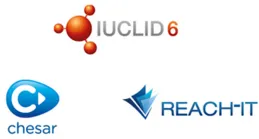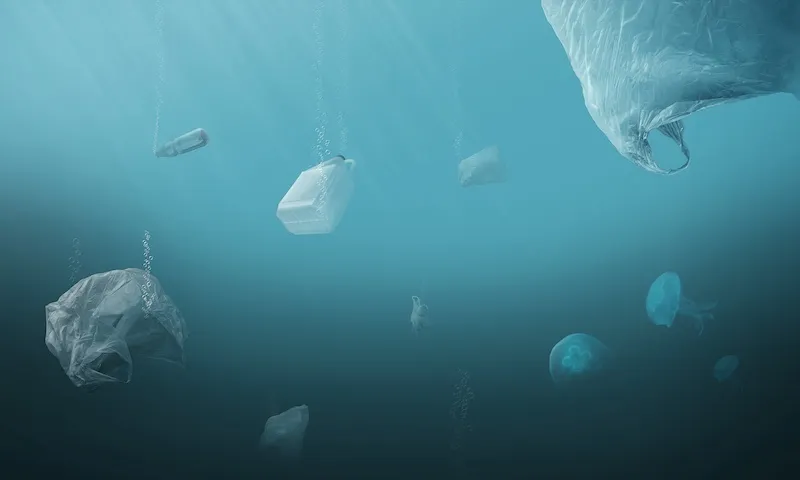
Why use a service provider for REACH Registration?
The service provider allows you to build an optimal and tailor-made REACH Registration strategy
Since 31 May 2018, each registrant is required to submit to a Registration dossier for substances that they manufacture or import on the European market at more than one ton per year, in accordance with the REACH regulation (EC No. 1907/2006). However, the modalities And the Registration costs are very diverse depending on the substances, the size of the company and the role you have.
A service provider guides you in determining the type of dossier to submit to ECHA. They help assess whether you should register as a Lead Registrant or a Member Registrant, based on various criteria such as the type of substance, its purity profile, and its characteristics.

The provider's expertise will help you budget the costs of your registration by informing you about the data and tests required for your dossier. This enables you to develop a strategy tailored to your substance portfolio, optimizing both costs and timelines.
In fact, the obtaining of data on chemical substances (analytical and/or toxicological data) is subject to availability of laboratories, and wait times can be significant.
Each REACH Registration dossier includes a certain number of tests on the substance:
- Analytical tests which allow the substance to be characterized from a physicochemical point of view (NMR, UV, XRD, etc.)
- Dossier as Lead Registrant: includes the toxicological and ecotoxicological tests required to assess the effects of the substance on human health and the environment, in accordance with the requirements of Annexes VII, VIII, IX, and X of the REACH Regulation.
Depending on the nature of the substance, not all tests are relevant, and it may sometimes be necessary to select the most suitable protocol, which requires expertise in chemistry and toxicology.
The service provider facilitates collaboration with laboratories.
The service provider works with a network of laboratories and can support you throughout the entire testing process.
- The availability of laboratories is a critical issue, as it affects the meeting or missing of regulatory registration deadlines. Working with multiple partner laboratories allows for better distribution of tests in case of overload.
- Regular collaboration with partner laboratories ensures preferential timelines and competitive costs.
The service provider relieves you of the management of the SIEF and defends the interests of your company.
The service provider acts, while respecting the confidentiality of your data, as intermediary between your company and other SIEF member companies (Substance Information Exchange Forum). It can:
- Buy the Letters of Access (LoA) and validate the data sharing conditions and the associated test costs on your behalf. All this in order to allow you to join SIEF and to be able to refer to the Principal Declarant's file containing all the studies.
- Managing SIEF newcomers, negotiate the terms of the SIEF contract And the LoA billing for SIEF members if you register as a Lead Registrant.
It can also help you in case of conflict management. Indeed, experience has shown that some Lead Declarants can be difficult to contact by Member Declarants who want to join an SIEF. The service provider can thus handle the management challenges related to the collection of information and the drafting of administrative documents.
This “external” intermediary role played by the service provider is beneficial for conflict management and discharge you from administrative management.
The service provider is used to handling IUCLID and REACH-IT
The management of the SIEF and the submission of the file are carried out via the platform REACH-IT which was developed by ECHA. Likewise, the final compilation of the data in the Registration file is carried out thanks to the IUCLID 6 software.
The use of these two tools can be complex and time-consuming. Engaging a service provider would save you time on data compilation, online submission, and managing the REACH-IT account, while reducing the risk of errors.

training courses, webinars to train you on the subject, but experience shows that nothing can replace the effectiveness acquired by a long habit of using these two tools.
A service provider therefore allows you to save data compilation time, of online submission, theREACH-IT account administration but also the training time to these computer tools.
4 criteria for choosing a provider for REACH Registration
#1 - A service provider who is not only an expert in the REACH regulation
One of the main criteria for choosing a good provider for REACH Registration is the extent of its expertise.
Indeed, REACH registration requires expertise in three different areas:
- Chemistry
- Regulation
- Toxicology
Regulatory expertise and mastery of computer tools
It is necessary for the service provider to know the REACH regulation and more particularly the articles dedicated to the registration of chemical substances, both in terms of administrative procedures and Computers What of nature of the data to be provided for the file.
Also, ensure that your service provider is accustomed to using REACH-IT, IUCLID (and possibly Chesar if you plan to carry out a CSR).
Legal knowledge for negotiating SIEF contracts and possible recourse in case of disputes.
Expertise in chemistry
Expertise in analytical chemistry is essential to provide accurate data on the substance (mandatory data), whether you are a Member Registrant or Lead Registrant. It is particularly important for complex substances such as multi-constituents or UVCBs, more so than for single-constituent substances.
This expertise also allows the service provider to be in a position to: check the quality of available analytical data (if the NMR spectra correspond to the right molecule for example), verification that must be completed before submitting the Registration file.
Toxicology expertise
Expertise in toxicology And in eco-toxicology is essential for the service provider if you mandate him to carry out a data gap (bibliographic search of the toxicological and eco-toxicological data available on the substance), and/or if you ask him to order tests specific to your substance for the Registration file.
The service provider must then be in a position to:
- Know the different bibliographical sources toxicological and eco-toxicological data
- Power read and interpret reports by knowing the endpoints relevant to the substance
- Know the specific tests to be carried out to guide the production of data for your Registration file.
Objective: to minimize test costs
With his knowledge of analytical tests, a competent chemist allows you to choose to carry out only the analytical tests that are essential for your substance.
Likewise, a good toxicologist allows you to minimize test costs:
- via expert bibliographical research
- Bibliographical research of available data on the substance
- then by identifying the substances for which we can carry out a reading across (approach by analogy or by category on other similar substances).
Insofar as the purchase of bibliographic data is less expensive than carrying out tests, he then deduces a strategy for optimizing the number of tests and thus minimizing the associated costs.
#2 - An experienced service provider to manage the influx of files
Remember to check the experiment from your service provider.
To ensure the methods of your service provider, you can, for example, inquire about the latest registration dossiers they have worked on.
The number of customers And ofRecordings made by the service provider is in fact a criterion to be taken into account: the more experienced a service provider is, the more he will have potentially had to manage complex situations (substances with a poorly defined composition, difficult SIEF management, etc.) and will be able to make you benefit from this know-how.
#3 - A service provider who knows how to be adaptable according to your size and sector of activity
The sectors of activity of companies that need to register their substances in order to market their products on the European market are very diverse! Chemicals, Construction, Engineering, Transportation, Coatings, Aerospace, Automotive... and the list goes on. Even companies in the Cosmetics sector are subject to REACH Registration.
Les Number of future tax filers Are also very varied, but with a majority of small structures.
Your REACH service provider must be able to adapt to very diverse substance portfolios, both in size and nature, and be capable of collaborating with both large industrial groups and SMEs.
#4 - A service provider who knows how to demonstrate diplomacy as well as rigor
REACH Registration requires very technical expertise. Indeed, during the Registration process, one must master administrative procedures such as:
- La negotiation of the conditions of SIEF contract
- Buying or selling Of a Access Letter (LoA) depending on your role as Principal Declarant or Member, and the negotiation of its price if applicable
- La management of a SIEF and its newcomers if you are the Principal Declarant (management of the contact, the contract, effective billing of the LoA, transmission of the token for access to the joint submission once the LoA has been paid, etc.)
- The payment of the fee to ECHA which conditions the allocation of your Registration Number, the final phase of your compliance
These various tasks require rigor in operational follow-up, and very often qualities of diplomacy when it comes to exchanges with other members of SIEF.
How can you be sure that the service provider you want to work with has these human qualities?
- First, find out about the values carried by the company. Does it value the human aspect as much as technical expertise?
- Do not hesitate to evaluate his degree of experience in managing SIEF, for example, by asking him the question directly when making contact.
Do you want to know more about REACH registration?
If you still have questions after reading this article, EcoMundo can help answer them and support you through all the stages of REACH Registration.
Our teams are listening to you!
Why use a service provider for REACH Registration?
The service provider allows you to build an optimal and tailor-made REACH Registration strategy
Since 31 May 2018, each registrant is required to submit to a Registration dossier for substances that they manufacture or import on the European market at more than one ton per year, in accordance with the REACH regulation (EC No. 1907/2006). However, the modalities And the Registration costs are very diverse depending on the substances, the size of the company and the role you have.
A service provider guides you in determining the type of dossier to submit to ECHA. They help assess whether you should register as a Lead Registrant or a Member Registrant, based on various criteria such as the type of substance, its purity profile, and its characteristics.

The provider's expertise will help you budget the costs of your registration by informing you about the data and tests required for your dossier. This enables you to develop a strategy tailored to your substance portfolio, optimizing both costs and timelines.
In fact, the obtaining of data on chemical substances (analytical and/or toxicological data) is subject to availability of laboratories, and wait times can be significant.
Each REACH Registration dossier includes a certain number of tests on the substance:
- Analytical tests which allow the substance to be characterized from a physicochemical point of view (NMR, UV, XRD, etc.)
- Dossier as Lead Registrant: includes the toxicological and ecotoxicological tests required to assess the effects of the substance on human health and the environment, in accordance with the requirements of Annexes VII, VIII, IX, and X of the REACH Regulation.
Depending on the nature of the substance, not all tests are relevant, and it may sometimes be necessary to select the most suitable protocol, which requires expertise in chemistry and toxicology.
The service provider facilitates collaboration with laboratories.
The service provider works with a network of laboratories and can support you throughout the entire testing process.
- The availability of laboratories is a critical issue, as it affects the meeting or missing of regulatory registration deadlines. Working with multiple partner laboratories allows for better distribution of tests in case of overload.
- Regular collaboration with partner laboratories ensures preferential timelines and competitive costs.
The service provider relieves you of the management of the SIEF and defends the interests of your company.
The service provider acts, while respecting the confidentiality of your data, as intermediary between your company and other SIEF member companies (Substance Information Exchange Forum). It can:
- Buy the Letters of Access (LoA) and validate the data sharing conditions and the associated test costs on your behalf. All this in order to allow you to join SIEF and to be able to refer to the Principal Declarant's file containing all the studies.
- Managing SIEF newcomers, negotiate the terms of the SIEF contract And the LoA billing for SIEF members if you register as a Lead Registrant.
It can also help you in case of conflict management. Indeed, experience has shown that some Lead Declarants can be difficult to contact by Member Declarants who want to join an SIEF. The service provider can thus handle the management challenges related to the collection of information and the drafting of administrative documents.
This “external” intermediary role played by the service provider is beneficial for conflict management and discharge you from administrative management.
The service provider is used to handling IUCLID and REACH-IT
The management of the SIEF and the submission of the file are carried out via the platform REACH-IT which was developed by ECHA. Likewise, the final compilation of the data in the Registration file is carried out thanks to the IUCLID 6 software.
The use of these two tools can be complex and time-consuming. Engaging a service provider would save you time on data compilation, online submission, and managing the REACH-IT account, while reducing the risk of errors.

training courses, webinars to train you on the subject, but experience shows that nothing can replace the effectiveness acquired by a long habit of using these two tools.
A service provider therefore allows you to save data compilation time, of online submission, theREACH-IT account administration but also the training time to these computer tools.
4 criteria for choosing a provider for REACH Registration
#1 - A service provider who is not only an expert in the REACH regulation
One of the main criteria for choosing a good provider for REACH Registration is the extent of its expertise.
Indeed, REACH registration requires expertise in three different areas:
- Chemistry
- Regulation
- Toxicology
Regulatory expertise and mastery of computer tools
It is necessary for the service provider to know the REACH regulation and more particularly the articles dedicated to the registration of chemical substances, both in terms of administrative procedures and Computers What of nature of the data to be provided for the file.
Also, ensure that your service provider is accustomed to using REACH-IT, IUCLID (and possibly Chesar if you plan to carry out a CSR).
Legal knowledge for negotiating SIEF contracts and possible recourse in case of disputes.
Expertise in chemistry
Expertise in analytical chemistry is essential to provide accurate data on the substance (mandatory data), whether you are a Member Registrant or Lead Registrant. It is particularly important for complex substances such as multi-constituents or UVCBs, more so than for single-constituent substances.
This expertise also allows the service provider to be in a position to: check the quality of available analytical data (if the NMR spectra correspond to the right molecule for example), verification that must be completed before submitting the Registration file.
Toxicology expertise
Expertise in toxicology And in eco-toxicology is essential for the service provider if you mandate him to carry out a data gap (bibliographic search of the toxicological and eco-toxicological data available on the substance), and/or if you ask him to order tests specific to your substance for the Registration file.
The service provider must then be in a position to:
- Know the different bibliographical sources toxicological and eco-toxicological data
- Power read and interpret reports by knowing the endpoints relevant to the substance
- Know the specific tests to be carried out to guide the production of data for your Registration file.
Objective: to minimize test costs
With his knowledge of analytical tests, a competent chemist allows you to choose to carry out only the analytical tests that are essential for your substance.
Likewise, a good toxicologist allows you to minimize test costs:
- via expert bibliographical research
- Bibliographical research of available data on the substance
- then by identifying the substances for which we can carry out a reading across (approach by analogy or by category on other similar substances).
Insofar as the purchase of bibliographic data is less expensive than carrying out tests, he then deduces a strategy for optimizing the number of tests and thus minimizing the associated costs.
#2 - An experienced service provider to manage the influx of files
Remember to check the experiment from your service provider.
To ensure the methods of your service provider, you can, for example, inquire about the latest registration dossiers they have worked on.
The number of customers And ofRecordings made by the service provider is in fact a criterion to be taken into account: the more experienced a service provider is, the more he will have potentially had to manage complex situations (substances with a poorly defined composition, difficult SIEF management, etc.) and will be able to make you benefit from this know-how.
#3 - A service provider who knows how to be adaptable according to your size and sector of activity
The sectors of activity of companies that need to register their substances in order to market their products on the European market are very diverse! Chemicals, Construction, Engineering, Transportation, Coatings, Aerospace, Automotive... and the list goes on. Even companies in the Cosmetics sector are subject to REACH Registration.
Les Number of future tax filers Are also very varied, but with a majority of small structures.
Your REACH service provider must be able to adapt to very diverse substance portfolios, both in size and nature, and be capable of collaborating with both large industrial groups and SMEs.
#4 - A service provider who knows how to demonstrate diplomacy as well as rigor
REACH Registration requires very technical expertise. Indeed, during the Registration process, one must master administrative procedures such as:
- La negotiation of the conditions of SIEF contract
- Buying or selling Of a Access Letter (LoA) depending on your role as Principal Declarant or Member, and the negotiation of its price if applicable
- La management of a SIEF and its newcomers if you are the Principal Declarant (management of the contact, the contract, effective billing of the LoA, transmission of the token for access to the joint submission once the LoA has been paid, etc.)
- The payment of the fee to ECHA which conditions the allocation of your Registration Number, the final phase of your compliance
These various tasks require rigor in operational follow-up, and very often qualities of diplomacy when it comes to exchanges with other members of SIEF.
How can you be sure that the service provider you want to work with has these human qualities?
- First, find out about the values carried by the company. Does it value the human aspect as much as technical expertise?
- Do not hesitate to evaluate his degree of experience in managing SIEF, for example, by asking him the question directly when making contact.
Do you want to know more about REACH registration?
If you still have questions after reading this article, EcoMundo can help answer them and support you through all the stages of REACH Registration.
Our teams are listening to you!







